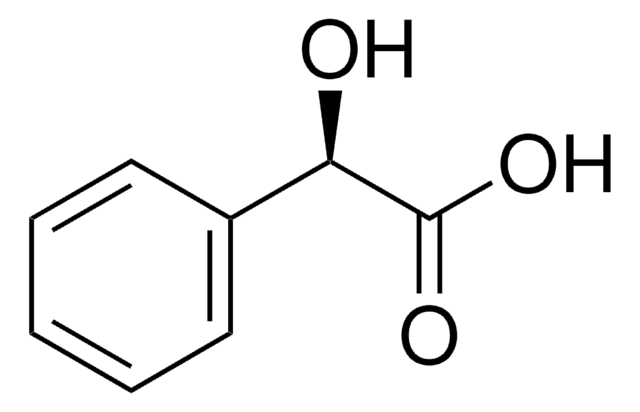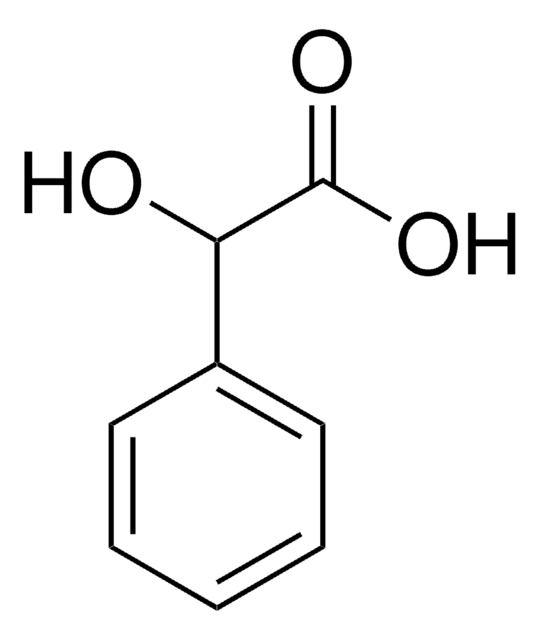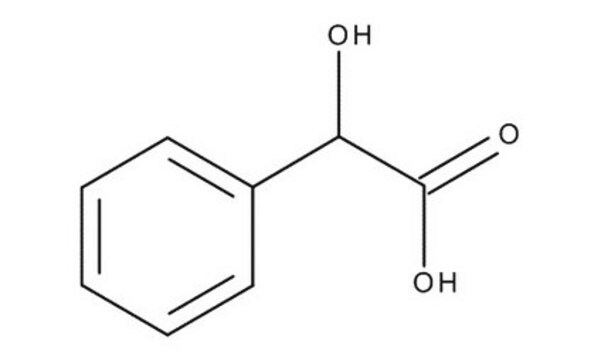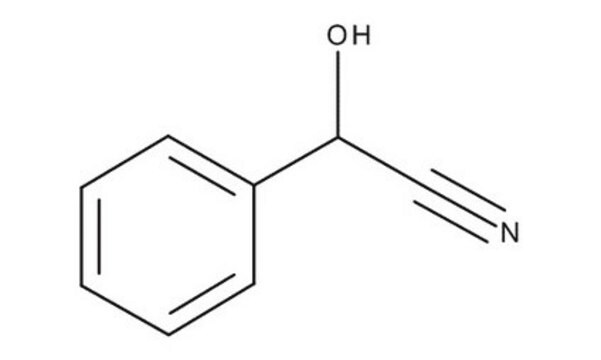778052
(S)-(+)-Mandelic acid
ReagentPlus®, ≥99%
Synonym(s):
(S)-α-Hydroxyphenylacetic acid
Sign Into View Organizational & Contract Pricing
All Photos(2)
About This Item
Linear Formula:
C6H5CH(OH)CO2H
CAS Number:
Molecular Weight:
152.15
Beilstein:
2208678
EC Number:
MDL number:
UNSPSC Code:
12352002
PubChem Substance ID:
NACRES:
NA.22
Recommended Products
Quality Level
product line
ReagentPlus®
Assay
≥99%
form
crystals
mp
131-134 °C (lit.)
132-138 °C
functional group
carboxylic acid
hydroxyl
phenyl
SMILES string
O[C@H](C(O)=O)c1ccccc1
InChI
1S/C8H8O3/c9-7(8(10)11)6-4-2-1-3-5-6/h1-5,7,9H,(H,10,11)/t7-/m0/s1
InChI key
IWYDHOAUDWTVEP-ZETCQYMHSA-N
Looking for similar products? Visit Product Comparison Guide
Related Categories
Application
(S)-(+)-Mandelic acid can be used as a starting material to synthesize (S)-cyclohexenyl phenyl glycoxilic acid, an optically active tertiary α-hydroxy acid component of (S)-oxybutynin.
It is a versatile reagent used in the resolution of racemates and the preparation of amides.
Legal Information
ReagentPlus is a registered trademark of Merck KGaA, Darmstadt, Germany
Signal Word
Danger
Hazard Statements
Precautionary Statements
Hazard Classifications
Eye Dam. 1
Storage Class Code
11 - Combustible Solids
WGK
WGK 3
Flash Point(F)
>374.0 °F
Flash Point(C)
> 190 °C
Choose from one of the most recent versions:
Already Own This Product?
Find documentation for the products that you have recently purchased in the Document Library.
Mara Reifenrath et al.
Metabolic engineering communications, 7, e00079-e00079 (2018-10-30)
Mandelic acid is an important aromatic fine chemical and is currently mainly produced via chemical synthesis. Recently, mandelic acid production was achieved by microbial fermentations using engineered Escherichia coli and Saccharomyces cerevisiae expressing heterologous hydroxymandelate synthases (hmaS). The best-performing strains
Tetrahedron, 50, 5049-5049 (1994)
Chiral mandelic acid template provides a highly practical solution for (S)-oxybutynin synthesis.
Grover P T, et al.
The Journal of Organic Chemistry, 65(19), 6283-6287 (2000)
Synthetic Communications, 23, 2761-2761 (1993)
The Journal of Organic Chemistry, 58, 2313-2313 (1993)
Our team of scientists has experience in all areas of research including Life Science, Material Science, Chemical Synthesis, Chromatography, Analytical and many others.
Contact Technical Service





